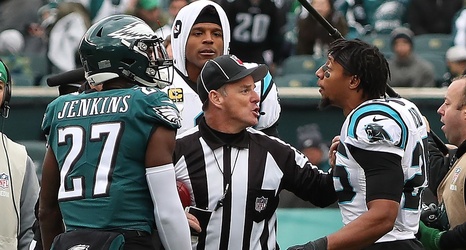It's difficult to lead a movement to end oppression and still be popular with the oppressor. Which is why I've spent the last two years viewing Malcolm Jenkins with a mixture of suspicion and confusion.
I wondered how Jenkins — an eloquent man with superior athletic ability — could credibly lead a group of NFL players in protesting racial injustice and lose nothing in the process. Colin Kaepernick, the former San Francisco 49ers quarterback who began those protests by kneeling during the national anthem, lost his job after he was effectively blackballed from the league. Eric Reid, a former Kaepernick teammate who joined the quarterback in those protests, remained unsigned after becoming a free agent this offseason, until the Carolina Panthers picked him up last month.
